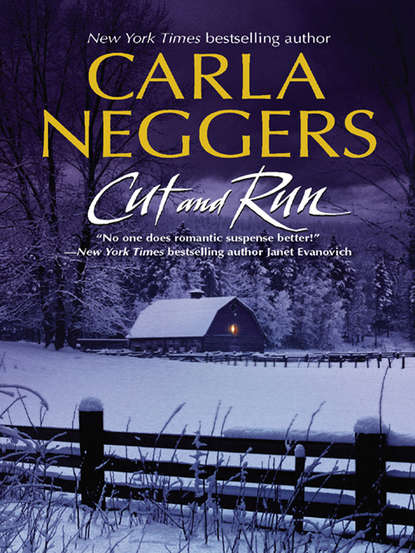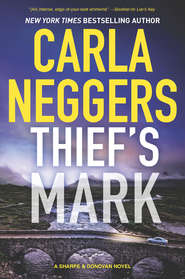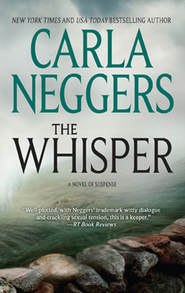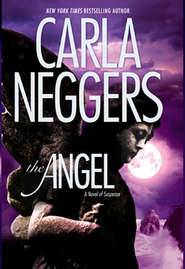По всем вопросам обращайтесь на: info@litportal.ru
(©) 2003-2024.
✖
Cut And Run
Автор
Год написания книги
2018
Настройки чтения
Размер шрифта
Высота строк
Поля
J.J. Pepper was back, and Juliana Fall didn’t know what to do about her. Tell Len the truth? Tell herself the truth? That she, Juliana Fall, was the pink-haired, free-spirited, jazz-playing J.J. Pepper?
She went into her own bedroom and put on a simple white Calvin Klein shirt, a straight black wool skirt, and a raspberry wool jacket. J.J.’s raspberry boots would have matched the outfit, but she chose instead her black Italian boots and passed over the raccoon coat for her black cashmere. She was having dinner tonight with Shuji, and if there was one thing Eric Shuji Shizumi would never understand, it was J.J. Pepper. Shuji was a phenomenal pianist, a wild, intense, impatient genius who exhausted audiences with his thrilling performances. He was forty-eight, and in his long career, he’d taken on only one student: Juliana Fall.
“And if he finds out about J.J.,” she said aloud as she waited for the elevator, “he’ll lop off your head with one of his authentic Japanese short swords.”
He’d threatened to do the same for transgressions far less serious than playing jazz incognito in a SoHo nightclub.
Halfway to the lobby, she remembered she was still wearing J.J.’s gaudy rhinestone ring, which she snatched off, dropped into her handbag, and tried to forget.
The Dutchman had walked across Central Park, ignoring the falling temperature and the lightly falling snow. Children on the plastic things they now used for sleds laughed as they passed him; he ignored them, too. He crossed Fifth Avenue and continued along East Seventy-ninth to Madison and up several more blocks, until he came to a little bake shop with white-trimmed windowpanes. Inside, the display of Dutch wooden shoes filled with chocolates and tiny gifts made it look as if St. Nicholas had already been there. Sint Nicolaas. Hendrik hadn’t thought of him in years.
Catharina’s Bake Shop the sign read in simple delft-blue letters. The Dutchman lingered in front of the window. Small round tables covered with delft-blue cloths were crowded with customers, laughing, happy customers indulging themselves with hot chocolate, silver pots of coffee, china pots of tea, fat cream puffs, perfect tarts and trays of scones, tiny sandwiches, assorted jams and cheeses. Glass cases were stocked with good things to take home, and smiling white-aproned waitresses bustled among the customers.
For the first time in more than forty years, Hendrik de Geer felt himself swelling with nostalgia. He had to blink away hot tears—him! A couple hurried past him, and when they opened the door, he heard the tinkle of a little bell and smelled cinnamon, nutmeg, anise, butter, and fresh coffee. It was almost more than he could bear. They were the smells of his youth, and he choked with emotion, unable to hold back the memories.
He didn’t venture inside. He shoved his cold hands into the pockets of his cheap overcoat and stared through the window, watching a couple torture themselves over which cake to choose. The chocolate or the buttercream? If only his choices were that trivial.
A woman appeared behind the glass case, and for a moment Hendrik thought her radiant smile was directed at him. Catharina… he wanted to cry out to her.
But the sight of him would only bring her pain, and he stepped back so that she wouldn’t be able to see him out on the street, alone in the dark. She spoke to the couple, and he watched, marveling at how little she’d changed. Even now, in her late fifties, there was something so captivatingly fresh and innocent about her. Her wispy white-blond hair was braided on top of her head like some long-ago Dutch queen, but without queenly arrogance, and she wore a turquoise knit dress beneath her apron. She had a strong chin and nose, almost too strong, but her dark green eyes were round and soft and exactly as Hendrik remembered.
She helped the couple choose the chocolate cake and wrapped it herself, and when the Dutchman heard the tinkle of the little doorbell as they left, he was halfway down the block.
Choices. What nonsense was this about choices? He had no choice. As always he would simply do what had to be done.
Eric Shuji Shizumi had lit a cigarette over coffee—a bad sign. He was demonically good-looking, a wiry man with sharp features, longish fine black hair touched with gray, and probing black eyes. He was notoriously single-minded. Born in San Francisco, he was sansei, third-generation Japanese-American. But his earliest memories were of a concentration camp in Wyoming, something he never discussed, never permitted to be printed in his program notes. He could have married a dozen times over, but it was the piano that possessed his soul and consumed his life—and, some said, Juliana Fall. She had heard the rumors but had always dismissed them. She knew Shuji at least as well as he knew her, and whatever had bonded them together for the past twenty years, it wasn’t sex and romance. Their relationship was volatile and incomprehensible. In their own way, they were devoted to each other, but neither had shown any inclination to marry, either each other or anyone else. Shuji was no longer formally her teacher, but she was still widely described as his sole student and continued to rely on his advice and guidance. She supposed she still needed his approval, and, too, he understood the demands of international artistic fame better than most. Yet the isolation demanded by his profession never bothered him the way it often did Juliana. He was content to sit for hours at the piano, alone with his work, day after day, month after month, year after year. He had little sympathy with his sole student’s need to be with people on occasion.
He blew out his match and dropped it in an ashtray, exhaling a noxious cloud of smoke. “Juliana,” he said, “we need to talk.”
Her heart pounded. He’s found out about J.J.! But that was impossible. Shuji would never have gotten through dinner if he’d known she’d played Mose Allison at a SoHo club that very afternoon. He’d have gone after her with a steak knife. “About what?” she asked.
“What’s happening to you.”
“Me? I’ve just returned from a grueling European tour, and Saturday night I’m doing my hundredth concert this year at Lincoln Center. That’s what’s happening to me.” Shuji held the cigarette in the corner of his mouth, not in-haling. They were at a tiny, bring-your-own wine Italian restaurant just off Broadway on the Upper West Side. It wasn’t glitzy, and if any of their fellow diners recognized the two world-famous musicians, they left them alone. Juliana was drinking decaffeinated café au lait, hoping it would counteract the wine and food and jet lag so she could go home and run through the Beethoven concerto she would be performing in two days.
“And after the concert?” Shuji asked. “Then what?”
“I go to Vermont for a week or so on a well-deserved vacation, and then I come back and spend the next few months working and recording. I don’t have another concert until spring. I’m cutting back some this year. You know all that, Shuji, so what are you trying to get at?”
“Don’t go to Vermont,” he said.
“What?”
“You heard me. Don’t go.”
“Shuji, I need rest. Dammit, I deserve a break!”
“You need work.”
“I work all the time. I’ve been on the road for four months—”
“The real excitement of being a pianist is in the practice room, not on the concert stage. Juliana, you’ve been operating at a killing pace the past few years. I know that. And you know I support your cutting back from a hundred concerts a year. But I don’t support your going to Vermont, at least not right away. You need to experience the excitement of the practice room again, and as soon as possible.”
“Jesus Christ, Shuji, I’m only going to be gone a week!”
Shuji took a deep drag on his cigarette, held the smoke a moment, then exhaled. Juliana coughed and drank some of her café au lait, but he paid no attention. As usual, he was absorbed totally in his own thoughts. If we were married, she thought, we’d last two weeks.
“A pianist doesn’t look forward to a vacation where there is no piano,” he said.
You shit, she thought, but held back. She owned a small, antique Cape Cod house overlooking the Batten Kill River in southwestern Vermont; during the winter, she liked to keep a fire going in the center chimney fireplace. She would sit in front of the flames with an old quilt spread on her lap and read books, not thinking about music. It was true she didn’t have a piano in Vermont. She didn’t even have a stereo. What she had was silence.
“Shuji,” she said carefully, controlling her impatience. “I am not you. I need this time out, and I’m going to take it.”
“It would be a mistake.”
“Why all of a sudden would going to Vermont be a mistake? It’s not as if I’ve never done it before.”
“I was in Copenhagen, Juliana.”
“Shit.”
“Yes.”
Copenhagen hadn’t been one of her more memorable performances. In fact, it had been distinctly forgettable. But Shuji didn’t comprehend things like bad nights, and Juliana knew better than to make excuses. “It was an inferior performance,” she admitted, “but skipping Vermont isn’t going to change that—and what the hell are you sneaking into my concerts for? Haven’t you got anything better to do?”
“I was in Paris also.”
“Well, then, you know Copenhagen was an aberration.” She had received a standing ovation and rave notices in Paris—and had earned them.
But Shuji was shaking his head solemnly as he crushed his cigarette in the ashtray. “I’m not interested in what went on on the surface, I’m interested in what’s going on beneath the surface.” He always talked like that; it drove her nuts. “I heard something in Copenhagen and in Paris—on a ‘bad’ night and on a ‘good’ night, if you insist. It was an uneasiness, I believe, a hint of unpredictability. No one else would notice, of course, but soon they will, if you let it get away from you. Be aware of it. Control it. Find out what it is, Juliana, and use it to your advantage. The only place you can do that is in the practice room.”
What he’d heard was J.J. Pepper creeping into her work, but that wasn’t something Juliana wanted to discuss with Eric Shuji Shizumi. “Fine. I’ll work on it after Vermont.”
“You’re in a funk, Juliana.”
“I’m not.”
His black eyes probed her face. “Are you afraid of burning out?”
“No.”
“I was, when I was thirty. You don’t remember. You were just a child and had no understanding of such things. But despite all the acclaim, the recordings, the bookings, I wondered if I’d still be around when I was thirty-five. Countless young pianists are just flash-in-the-pans, brilliant for a few years and then gone—poof. Sometimes it’s their choice; sometimes not.”
“I’m not going to go ‘poof’, I’m going to go to Vermont.”
“God knows the public’s fickle, always searching for a new star, and our competition system thrusts pianists into the public light at an incredibly young age. The pressures of being a virtuoso are enormous. You’re so exposed, so vulnerable. At thirty, the novelty’s worn off. You’ve made a great deal of money, and you must decide if you want to be in this thing for the long haul or not.”
“I’ve never considered not being a pianist.”











